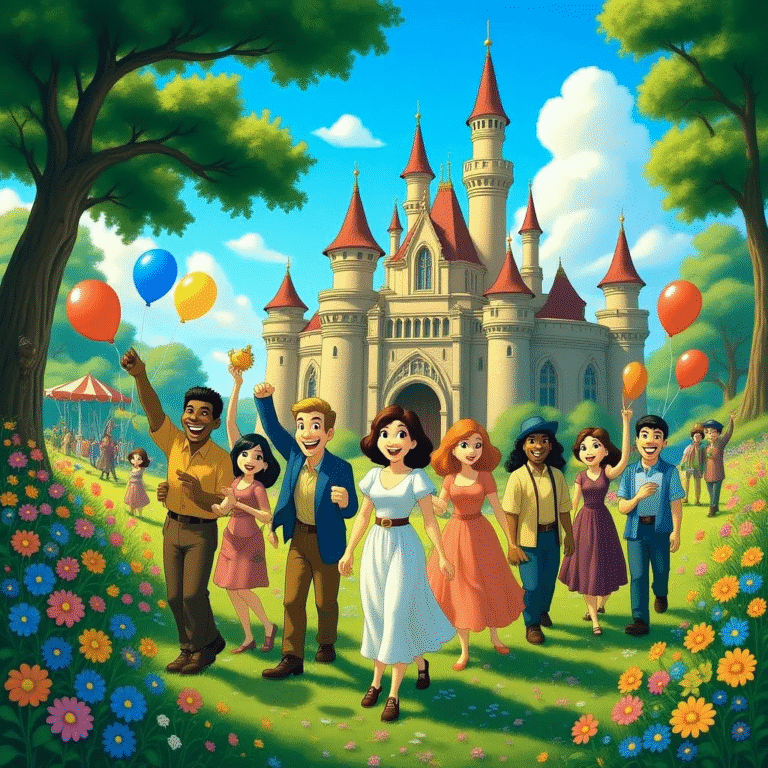Share this
 August 2nd is a date marked by a variety of historical, cultural, and social significances across the world. While it may not be as universally recognized as some other dates, it holds particular importance in specific contexts and regions. From notable historical events to the birthdays of influential figures, August 2nd offers a rich tapestry of commemorations and observances that reflect its diverse significance. This article provides a comprehensive overview of what August 2nd is commemorated for, exploring its historical background, key events, notable personalities, and its role in different cultures and nations.
August 2nd is a date marked by a variety of historical, cultural, and social significances across the world. While it may not be as universally recognized as some other dates, it holds particular importance in specific contexts and regions. From notable historical events to the birthdays of influential figures, August 2nd offers a rich tapestry of commemorations and observances that reflect its diverse significance. This article provides a comprehensive overview of what August 2nd is commemorated for, exploring its historical background, key events, notable personalities, and its role in different cultures and nations.
Introduction to August 2nd: Significance and Historical Context
August 2nd holds a unique place in history as a day that has witnessed pivotal moments across different eras. Its significance is often rooted in political upheavals, treaties, and breakthroughs that have shaped nations and societies. Historically, this date falls in the middle of summer in the Northern Hemisphere, a period often associated with transition and change, which is reflected in the variety of events that have occurred on this day. The historical context of August 2nd is closely linked to major developments in world history, including conflicts, diplomatic agreements, and social movements.
Throughout the centuries, August 2nd has been a witness to moments of conflict and resolution alike. For example, in the 20th century, it marked significant events such as political coups and peace agreements that altered the course of nations. The date also falls within the broader timeline of significant historical epochs, such as the aftermath of World War II and the Cold War era, which saw many key developments around this time. Understanding the historical context of August 2nd allows for a deeper appreciation of its importance in shaping the present.
In addition to political and military events, August 2nd is also notable for cultural milestones and moments of scientific progress. The date has been linked to the births of influential figures in arts, science, and politics, contributing to its layered historical significance. Recognizing these aspects helps to paint a comprehensive picture of why August 2nd is a day worth remembering and reflecting upon in various contexts.
Major Events Celebrated or Remembered on August 2nd
Several significant events have taken place on August 2nd that are remembered and sometimes celebrated in various contexts. One of the most notable historical events is the signing of important treaties or agreements that have had lasting impacts. For instance, on August 2nd, 1990, the Treaty of Friendship and Cooperation was signed between the Soviet Union and Mongolia, reinforcing diplomatic ties during a period of geopolitical change. Such treaties are often commemorated as milestones in international relations.
August 2nd also marks notable moments in the history of conflict and resolution. For example, in 1994, the signing of the Bosnian General Framework Agreement, which aimed to bring peace to Bosnia and Herzegovina after years of ethnic conflict, was a pivotal event that occurred close to this date. These events are remembered for their significance in promoting peace and stability in regions affected by war. Additionally, some countries observe anniversaries of independence or liberation that fall on this date.
In the realm of science and culture, August 2nd has seen the launch of notable projects, discoveries, and cultural milestones. For instance, the launch of significant space missions or the founding of influential organizations sometimes coincides with this date. While not always celebrated publicly, these events contribute to the broader historical narrative associated with August 2nd, emphasizing its role as a day of change, progress, and remembrance across various fields.
Notable Historical Figures Born on August 2nd
August 2nd is the birthday of numerous influential figures across different domains, whose contributions have left lasting legacies. In the realm of politics and leadership, figures such as Louis Armstrong, the legendary jazz musician and singer, was born on this day in 1901. His innovative approach to music revolutionized jazz and popular music worldwide, making him a celebrated figure whose birthday is often acknowledged in cultural observances.
In arts and literature, notable personalities include Neil Armstrong, the American astronaut famous for being the first person to set foot on the Moon in 1969. His pioneering spirit and contributions to space exploration have made his birthday a symbol of human achievement and curiosity. Similarly, historical figures like Martha Stewart, the American businesswoman and television personality, were born on August 2nd, contributing to the fields of entrepreneurship and media.
Science and sports also boast notable August 2nd birthdays. For example, the French mathematician Augustin-Louis Cauchy, renowned for his foundational work in analysis, was born on this date in 1789. In sports, figures like American football player and coach Bill Parcells were born on August 2nd, highlighting the diversity of influential personalities associated with this day. These birthdays serve as a reminder of the varied ways individuals born on August 2nd have contributed to society.
Cultural and Religious Observances on August 2nd
While August 2nd does not universally correspond to major religious holidays, it is observed in various cultures and communities through specific traditions and commemorations. In some regions, local festivals or saints’ feast days are celebrated on this date, reflecting religious and cultural histories. For example, in the Catholic calendar, certain saints are commemorated on August 2nd, such as Saint Eusebius of Vercelli, whose feast day is observed by followers of the saint.
In addition to religious observances, cultural events linked to historical anniversaries or local traditions may take place on August 2nd. These can include parades, community gatherings, or commemorative ceremonies honoring historical figures or events that occurred on this date. Such observances help reinforce cultural identity and collective memory within specific communities.
Furthermore, in some countries, August 2nd marks the beginning or culmination of seasonal festivals or agricultural celebrations. These events often involve traditional music, dance, and food, serving as expressions of cultural heritage. Overall, while not universally marked by religious holidays, August 2nd holds cultural significance through various local and community-based observances that celebrate history, faith, and tradition.
Important Anniversaries and Commemorations Held on August 2nd
August 2nd is associated with several important anniversaries and commemorative events that nations and organizations observe annually. One such anniversary is the signing of treaties or foundational documents that have shaped national histories. For example, in some countries, the anniversary of independence or liberation is commemorated on this date, serving as a reminder of the struggles and achievements that led to sovereignty.
In the realm of international diplomacy, notable peace agreements or diplomatic milestones are often remembered on August 2nd. These commemorations serve to honor efforts toward stability and cooperation among nations. For instance, the anniversary of the end of specific conflicts or the signing of peace accords that occurred on this date may be observed with ceremonies and educational events to promote peace and reconciliation.
Organizations and communities also mark this day with memorials or remembrance events for significant historical figures or events associated with August 2nd. These commemorations aim to educate the public about past struggles, inspire future generations, and foster a sense of historical continuity. Overall, August 2nd functions as a day of reflection, celebration, and remembrance across various contexts worldwide.
August 2nd in the Context of Global History and Politics
In the broader scope of global history and politics, August 2nd has played a role in shaping international relations and national narratives. The date has seen the signing of treaties, declarations, and agreements that influenced geopolitical dynamics. For example, the 1990 signing of the Treaty of Friendship and Cooperation between the Soviet Union and Mongolia on August 2nd exemplifies diplomatic efforts during a time of significant political change.
Throughout history, August 2nd has also been associated with moments of upheaval or transition. It is the anniversary of events such as military coups, independence declarations, or key policy decisions that have affected regional stability. These events often serve as turning points, influencing the course of history in their respective areas.
In contemporary politics, the date may be linked to ongoing commemorations of past conflicts or diplomatic milestones. It also serves as a reminder of the importance of international cooperation and peacebuilding. Recognizing August 2nd within this context highlights its significance in understanding the complex web of global history, politics, and diplomacy.
How August 2nd Is Recognized in Different Countries
Different countries recognize August 2nd through various national holidays, memorials, and cultural practices, reflecting their unique histories and traditions. In some nations, the date marks independence anniversaries or significant political milestones. For instance, in the United States, August 2nd is not a federal holiday but may be observed locally for specific historical events or community celebrations.
In other countries, August 2nd holds more prominent significance. For example, in Mongolia, the signing of the Treaty of Friendship and Cooperation with the Soviet Union in 1990 is remembered as a key moment in their post-Cold War history. Similarly, in some European nations, local saints’ feast days or historical anniversaries associated with August 2nd are observed through religious services and community events.
The recognition of this date also varies in terms of public observances and media coverage. Some countries might hold official ceremonies, parades, or educational programs to commemorate important events or figures linked to August 2nd. Overall, the way August 2nd is recognized reflects each country’s historical experiences, cultural values, and national identity.
Summary: The Importance and Meaning of August 2nd
August 2nd is a date that encapsulates a wide array of historical, cultural, and political significances across the globe. It serves as a reminder of pivotal moments in history, from treaties and peace agreements to the births of influential figures who have shaped societies. While not universally celebrated as a holiday, the day is marked by various commemorations, remembrance events, and cultural observances that highlight its layered importance.
The significance of August 2nd extends beyond specific events, embodying themes of progress, conflict resolution, and cultural identity. It provides an opportunity for reflection



